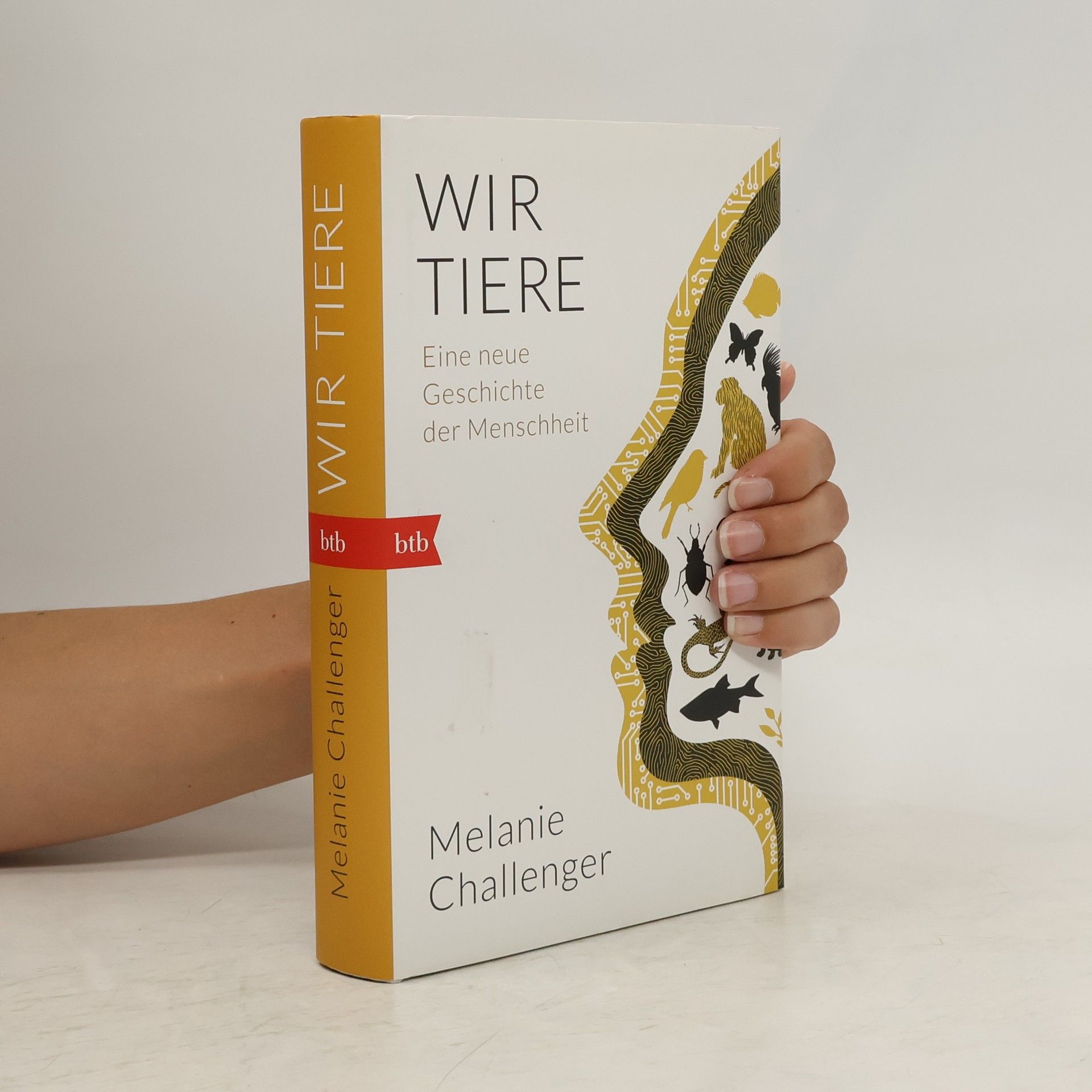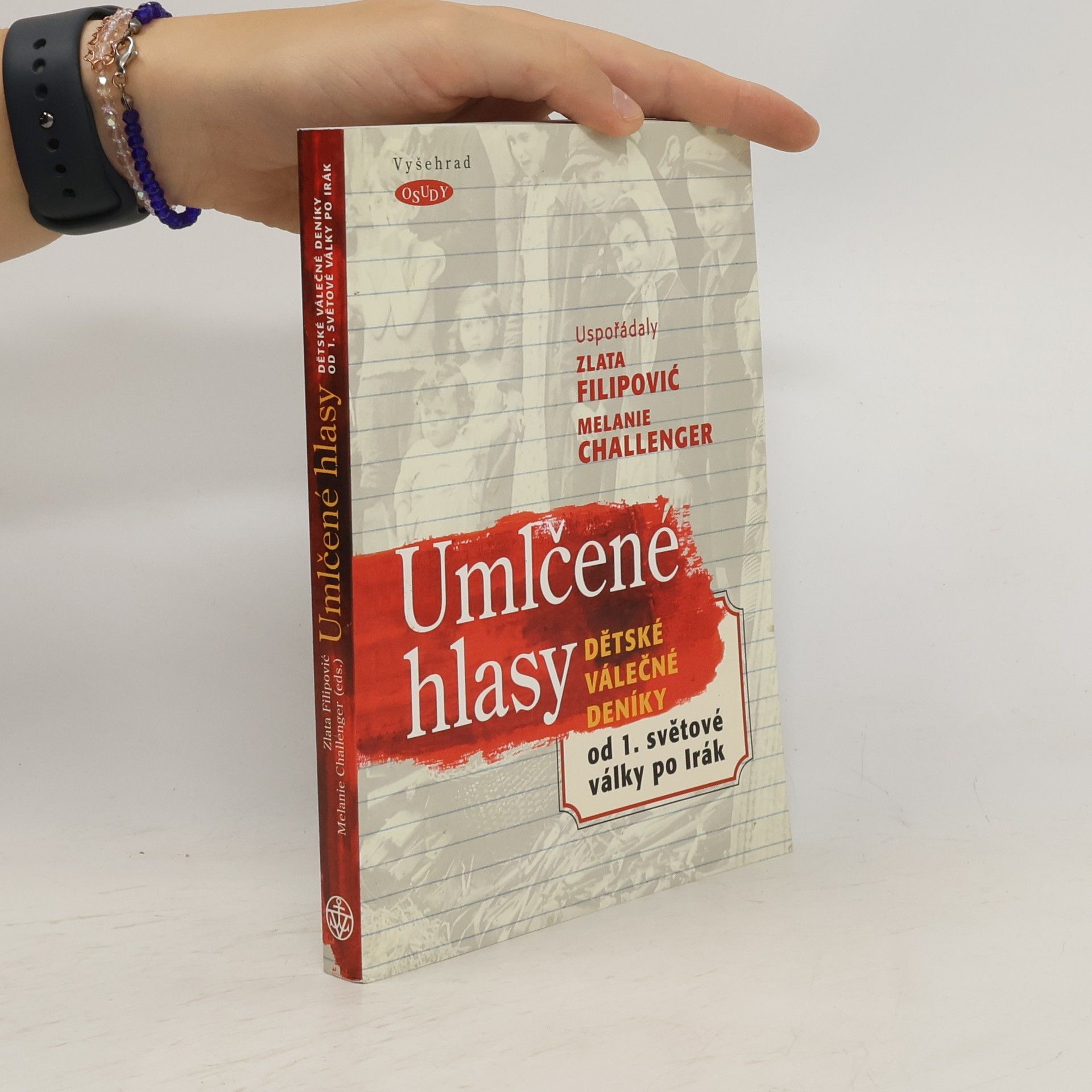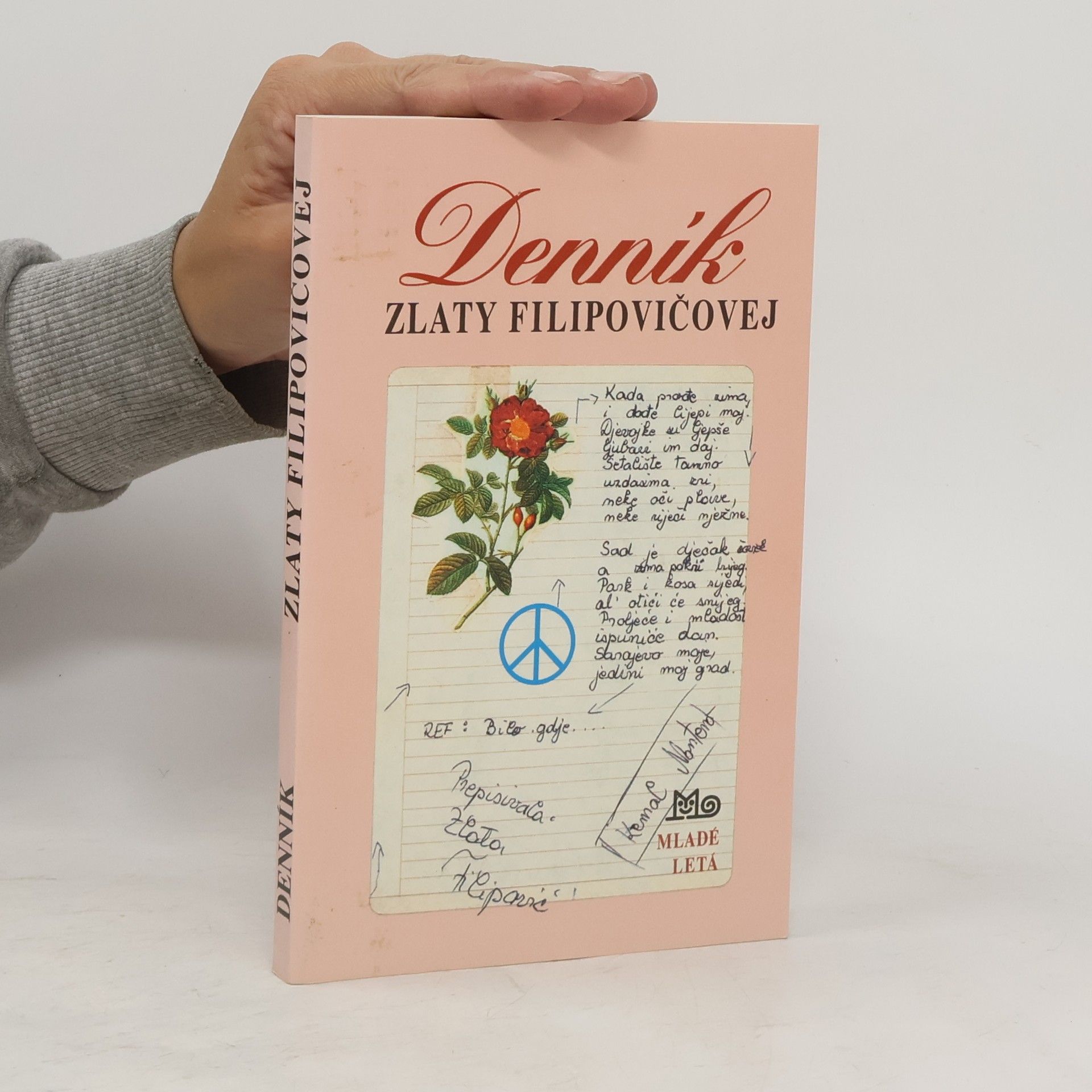Eine vollkommen neue Geschichte der Menschheit. Wir Menschen sind die neugierigsten, emotionalsten, einfallsreichsten, aggressivsten und gleichzeitig verwirrendsten Tiere auf dem Planeten. Doch wie gut kennen wir uns wirklich? Hadern wir mit unserer eigenen tierischen Natur und vernachlässigen damit einen zentralen Aspekt unseres Menschseins? Challengers revolutionäres Buch kombiniert neueste wissenschaftliche Erkenntnisse aus Natur- und Umweltgeschichte, Biologie und Philosophie, und führt uns thematisch von den frühen Agrargesellschaften über die Antike und die Moderne bis hinein in die nahe Zukunft der künstlichen Intelligenz. Ausstattung: mit zahlreichen Abbildungen
Zlata Filipović Ordine dei libri (cronologico)
Il lavoro di Zlata Filipović offre una profonda testimonianza delle esperienze di guerra, vividamente catturate attraverso i suoi resoconti personali dell'assedio di Sarajevo. La sua scrittura, spesso paragonata a quella di Anna Frank, offre una prospettiva intima sulla resilienza e sul trauma dell'infanzia in mezzo al conflitto. Dopo la guerra, la Filipovićová ha continuato ad amplificare le voci dei giovani, contribuendo a raccolte che esplorano l'impatto del conflitto e dello sfollamento sulla gioventù. La sua difesa si estende alla lotta contro i pregiudizi, utilizzando la sua piattaforma per sensibilizzare e promuovere la comprensione.







How to Be Animal
- 272pagine
- 10 ore di lettura
Humans are the most inquisitive, emotional, imaginative, aggressive and baffling animals on the planet. But how well do we really know ourselves?How to Be Animal offers a radical take on what it means to be human and argues that at the heart of our psychology is a profound struggle with being animal. Tracing the history of this thinking through to its far-reaching effects on our lives, and drawing on a range of disciplines, Challenger proposes that being an animal is a process, beautiful and unpredictable, and that we have a chance to tell ourselves a new story; to realise that if we matter, so does everything else.
Umlčené hlasy
- 282pagine
- 10 ore di lettura
Rok 1992 prožila Zlata Filipović v úkrytu v Sarajevu. Deník, který si začala psát jako bezstarostná dvanáctiletá dívka, se stal deníkem válečným – záznamem zkázy, která ji obklopovala, a svědectvím o životě dítěte ve městě pod palbou. Zlatin deník nakonec vyšel knižně v 35 jazycích a dodnes se čte na školách po celém světě. Její životní zkušenost stála u zrodu unikátního projektu. Společně s Melanie Challenger strávila Zlata Filipović poslední dva roky sbíráním válečných deníků z celého světa, z nichž mnohé nikdy nebyly publikovány nebo byly dávno zapomenuté. Jejich autory jsou děti či mladí lidé do dvaadvaceti let, kteří od roku 1914 do současnosti zažili nejrůznější válečné konflikty, války občanské nebo světové. Soubor válečných deníků, jenž se Zlatě Filipović společně s Melanií Challenger podařilo shromáždit a který nyní vychází pod názvem Umlčené hlasy i v češtině, zachycuje univerzální zkušenost mladých lidí s válkou, ať už se odehrává kdykoliv a kdekoliv. Deníky jsou svědkem jejich zoufalství, zmatenosti, pocitů nespravedlnosti a bolesti, ale i každodenních událostí, snahy žít normálním životem, dospívání, naděje, humoru, plánů do budoucna... Ačkoliv tyto zkušenosti pocházejí z různých míst světa a zahrnují období téměř celého století, jako by spolu mluvily, soucítily spolu a zněly jedním hlasem ukradeného dětství a mládí, které se nikdy nevrátí.
Zlata's Diary: A Child's Life in Wartime Sarajevo: Revised Edition
- 197pagine
- 7 ore di lettura
The child's diary that awakened the conscience of the world When Zlata’s Diary was first published at the height of the Bosnian conflict, it became an international bestseller and was compared to The Diary of Anne Frank, both for the freshness of its voice and the grimness of the world it describes. It begins as the day-to-day record of the life of a typical eleven-year-old girl, preoccupied by piano lessons and birthday parties. But as war engulfs Sarajevo, Zlata Filipovic becomes a witness to food shortages and the deaths of friends and learns to wait out bombardments in a neighbor’s cellar. Yet throughout she remains courageous and observant. The result is a book that has the power to move and instruct readers a world away.
Diario di Zlata
- 176pagine
- 7 ore di lettura
In a voice both innocent and wise, reminiscent of Anne Frank, Zlata Filipovic's diary has awakened the world's conscience. At thirteen, Zlata began her diary just before her eleventh birthday, capturing the peaceful life of a bright, carefree girl in Sarajevo. Her early entries reflect her friendships, family, school, and interests, including a desire to join the Madonna Fan Club. However, her perspective shifts dramatically when she sees bombs falling on Dubrovnik. Initially unable to imagine such violence in her own city, she soon faces the harsh reality as war descends upon Sarajevo. The tone of her diary transforms, beginning with a harrowing entry addressed to "Dear Mimmy," her deceased goldfish, filled with words like "SLAUGHTERHOUSE! MASSACRE! HORROR!" Zlata's world becomes increasingly confined as she and her family take refuge in a neighbor's cellar, enduring nights of relentless shelling. The war disrupts her education, deprives her of basic necessities, and takes a toll on her loved ones. Amidst despair, she expresses profound thoughts on humanity and the inhumanity of war. Yet, with remarkable courage and clarity, Zlata clings to remnants of her former life, continuing her piano studies, seeking books, and celebrating special moments, all chronicled in her extraordinary diary.
Denník Zlaty Filipovičovej
- 175pagine
- 7 ore di lettura
Deník bosenské dívky zachycuje dva roky jejího života v mírovém a posléze válečném Sarajevu. Od dětských starostí se školou a popisu školních zábav až po líčení těžké situace v ostřelovaném městě - v nedostatku, při loučení s přáteli, kteří město opouštějí či v jeho zdech umírají. Kniha má kromě dokumentární hodnoty i hodnotu literární - proměny životního postoje mladého člověka jsou zachyceny velmi sugestivně.